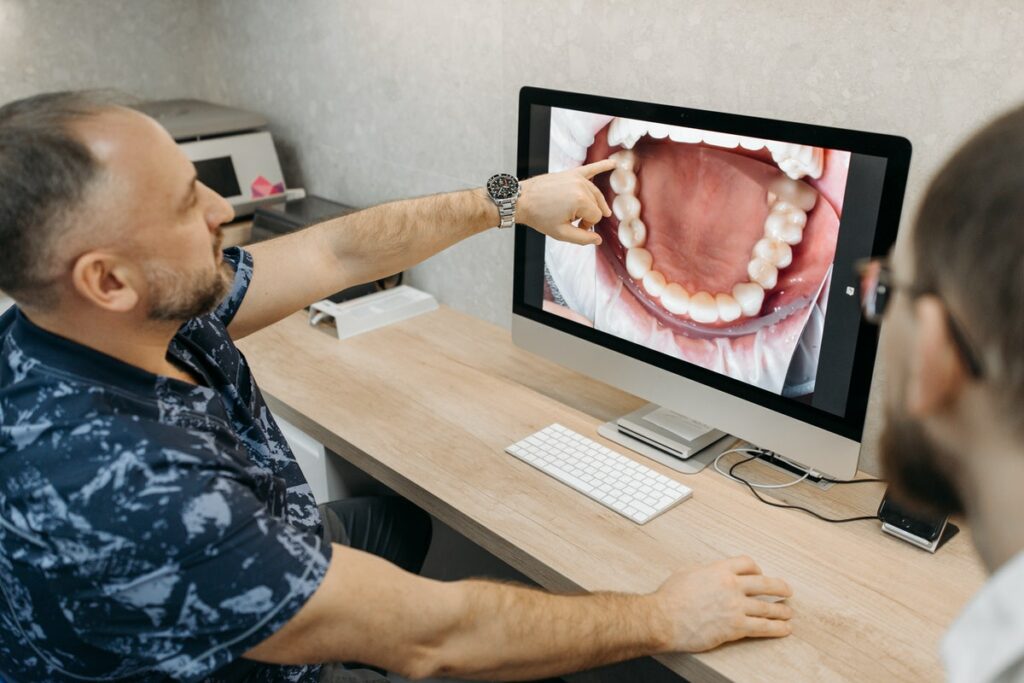Chewing problems can make it hard to enjoy meals because they can cause discomfort and make it difficult to chew food properly. This can lead to problems with swallowing and digestion, and malnutrition. Knowing the causes of chewing issues and the available solutions can help you get the treatment you need to make mealtimes more enjoyable.
There are solutions to common chewing problems, however. Read on to learn about four common chewing issues and how to solve them.
Dry Mouth
This is a condition that affects the mouth and throat. A lack of saliva can make the mouth dry, sticky, and uncomfortable. It can also make it difficult to swallow and chew food properly.
There are many causes of dry mouth, including certain medications, dehydration, and medical conditions like diabetes. If you drink alcohol or smoke tobacco, this can also contribute to a dry mouth.
There are a few different ways to treat dry mouth. You can try drinking more water and sucking on sugar-free candy to help stimulate saliva production. There are also over-the-counter saliva substitutes that can help with the problem. It also helps to limit your alcohol intake and, if possible, avoid smoking. These lifestyle changes can make a big difference in relieving the symptoms of dry mouth.
If these measures don’t work, your doctor may be able to prescribe a medication that can help. Some devices can be worn at night to help with saliva production. This includes a saliva-stimulating gel that you can apply before bedtime.
Gum Disease
This is a condition caused by plaque buildup on the teeth and gums. This plaque irritates the gums and causes them to pull away from the teeth. When you have gum disease, you may experience bleeding gums, bad breath, and pain when chewing.
Thankfully, there are a few different ways to treat gum disease. You can start by practicing good oral hygiene habits like brushing and flossing regularly. This can help remove the plaque from your teeth and gums.
You may also need to use an antibacterial mouthwash to help kill the bacteria that cause gum disease. In some cases, you may need deeper cleanings from a dental clinic. They can also prescribe medication to help treat the infection.
You may need surgery to correct the problem if you have severe gum disease. This is usually a last resort, but in some cases, it’s the only way to treat the condition.
Mouth Sores
These are small wounds that can form in the mouth, on the tongue, or the lips. They can be painful and make it difficult to eat or drink. Viral infections usually cause mouth sores, but certain medical conditions, allergies, or even stress can also be the culprit.
There are a few different ways to treat mouth sores. You can start by using a soft-bristled toothbrush to avoid irritating the sore. You can also rinse your mouth with salt water to help reduce pain and swelling. There are also over-the-counter topical treatments that can speed up the healing process.
If the mouth sore is severe, it would be best to consult a doctor. They can prescribe medication to help speed up the healing process. In rare cases, surgery may be necessary to remove the mouth sore.
Missing Teeth
Missing some teeth can make it harder to chew properly. This can lead to problems with digestion and malnutrition. This is because you need to eat particular food to aid your nutrition, which makes it difficult if you can’t chew and digest them properly.
Having missing teeth can also make you self-conscious about your appearance. A gap or more in your teeth can make you conscious, find it hard to speak properly, and have trouble eating.
There are a few different ways to deal with missing teeth. You can start by visiting your dentist to see if you’re a candidate for dental implants. This is where they put a titanium screw in your jawbone and then attach a false tooth to it. This looks and functions just like a natural tooth.
The right dentist who can perform dental implants will have the knowledge and experience to perform the procedure correctly. You need to ensure they have the necessary certifications and licenses to do this since the procedure requires precision.
Another option is to get a dental bridge. This is where your dental healthcare provider puts false teeth in to fill the gap left by the missing tooth on either side of the gap. This is a less expensive option, but it’s not as durable or long-lasting as dental implants.
You can also get dentures, which are false teeth you can take in and out. This is usually the most affordable option, but they’re not as comfortable or durable as dental implants or bridges.
Different things can make it difficult to chew food correctly, leading to a series of problems. Whether you have missing teeth, gum disease, mouth sores, or anything else, solutions are available to help you. Don’t suffer in silence, as professionals are available to assist you.

